“Being a superhero is amazing,” muses Kate Bishop in the first issue of 2013’s Young Avengers, written by Kieron Gillen. “Everyone should try it.”
At the most basic level, many stories of superheroes (and, depending on the reader, supervillains) serve as a kind of power fantasy. While there are some drawbacks to the masked and caped life — the “great responsibility” that accompanies the proverbial “great power” — it isn’t hard to see the appeal of being a tremendously gifted, powerful, and often good-looking superhuman.
And while the majority of superhero comics focus on the heroic side of things, not all of them do.
DC Comics is currently publishing a Joker-centric title, for example; in recent years, Marvel has published series dedicated to the likes of Doctor Doom and Kang. (And that’s without going into characters like Venom and Loki, who have shifted over the years from villains to beloved antiheroes.)
One thing that a number of writers have zeroed in on is that operating as a superhero or supervillain would, in fact, be incredibly hard. Some of that has to do with the logistics of, say, maintaining a secret identity or operating a mysterious island base. And some involve the challenges of living in harsher world than the shared universes depicted in comics from Marvel and DC. What follows is a look at five very different books that might make you reconsider the whole “power fantasy” aspects of superheroing or supervillainy.
Starter Villain by John Scalzi
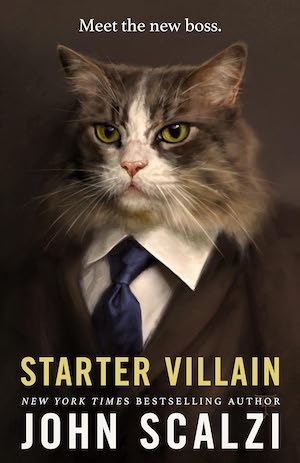
The story of John Scalzi’s Starter Villain opens in an unexpected place: the small town where former reporter Charlie is working as a substitute teacher and hoping to buy the local bar. It isn’t long before Charlie learns that his now-deceased uncle was, for lack of a better world, a supervillain — complete with volcano lair and genetically enhanced animal employees. Turns out the world of villainy in Scalzi’s novel has different gradations, and Charlie having something of an ethical backbone proves to be both a liability and an asset, depending on the situation.
For all that Starter Villain riffs on countless pulp tropes, from secret hideaways to secret societies, Scalzi has also spent some time thinking about how these things would work in a world reasonably close to our own — including the financial advantages of having a base of operations on a volcanic island and the challenges of negotiating a labor dispute with a group of profane dolphins with enhanced intelligence. Lex Luthor and Ernst Stavro Blofeld likely never had to wrangle with similar issues — but they might have missed out as a result.
The Fortress of Solitude by Jonathan Lethem
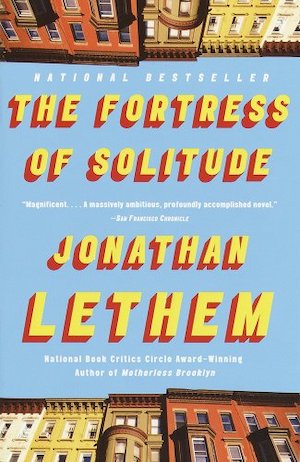
Reading Jonathan Lethem’s sweeping saga of two friends coming of age in 1970s Brooklyn involves being immersed in resonant details of a New York City that’s slipped into memory. For much of the novel, Lethem works in a realistic mode — and the artistic frustrations, economic challenges, and drug addictions that characters wrestle with are evidence of this.
That said, The Fortress of Solitude will never be mistaken for a work of outright realism, given that one of its other significant elements is a ring that bestows superhuman powers on its bearer. The idea of a power ring is a relatively common one in the superhero world — hell, there’s an alternate-universe Green Lantern whose name actually is Power Ring — but here, the use of that archetype winds up making the realistic parts of this novel that much more heartbreaking. It’s a glimpse of a better, more transcendent world — but it’s fleeting, and is all the more bittersweet for it.
Midnight’s Children by Salman Rushdie
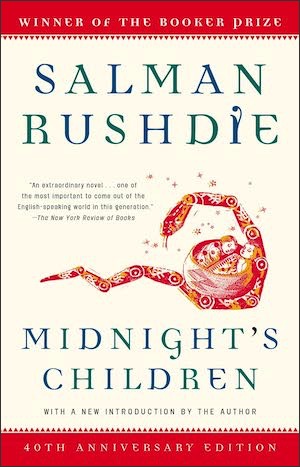
The concept of Salman Rushdie’s Midnight’s Children is simple: a group of children born at the moment when India becomes an independent country in 1947 develop a variety of uncanny abilities. These include telepathic, enhanced senses, and magical abilities; that this novel, with its grand concepts and expansive scope, won both the Booker Prize and the Best of the Booker in 2008 is no surprise.
Midnight’s Children isn’t just an epic novel populated by an array of memorable characters with miraculous abilities — though if it was, that would be fine. Instead, this novel is also Rushdie’s way of addressing decades of India’s history, including the experience of Partition and instances of political corruption and repression. And it’s one of the grandest tragedies in this novel that, even though this novel is populated by characters with powers and abilities greater than those of their peers, it provides them little protection against the more mundane dangers they face.
The Children’s Hospital by Chris Adrian
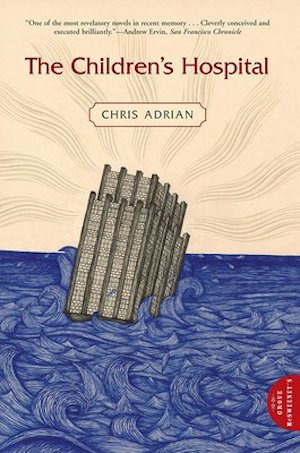
Years after I first read it, Chris Adrian’s mammoth novel The Children’s Hospital continues to rattle around in my head, its themes and images permanently etched in there. The novel is set in — no surprise here — a children’s hospital, and one that finds itself at the center of a series of apocalyptic events. The first of these is a torrential downpour, which floods the earth and sets the hospital afloat; soon afterwards, at least one of the people inside finds their relationship to the world altered—the novel’s protagonist, who gains healing abilities.
But the apocalyptic and transformative events don’t stop there, and Adrian has more tests to put his characters through before reaching the final pages; even there, a gift to accomplish miraculous things can only go so far. To say where this novel ends up would be to spoil some of the book’s later plot developments — but rest assured that Adrian knows both his theology (he’s studied at Harvard Divinity School) and his superhero comics (readers familiar with the X-Men will note a few nods in their direction at one point). This is a novel that—to paraphrase the subject of an earlier Adrian novel, Walt Whitman—contains multitudes.
The Dark Dark by Samantha Hunt
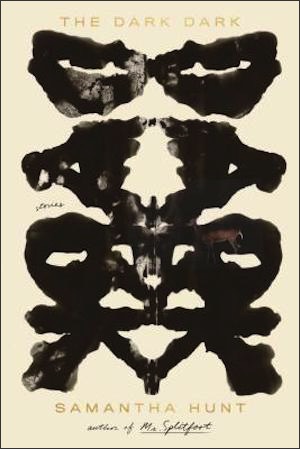
Samantha Hunt has been drawn to characters with supernatural talents—or the possibility of them–throughout her career. The protagonist of The Seas is a young woman who may or may not be a mermaid; characters in the book Mr. Splitfoot converse with the dead. Hunt’s fiction juxtaposes the miraculous with the quotidian, and the collection The Dark Dark features a story that neatly encapsulates this, titled “Beast.”
This story’s protagonist develops an intriguing ability: at night, she transforms into a deer. There are some challenges to this, including the fact that she’s indoors when she does so, making getting outside virtually impossible. It’s a metaphorically rich moment, but it’s also a fascinating juxtaposition of the supernatural and the mundane.
Tobias Carroll is the managing editor of Vol.1 Brooklyn. He is the author of the short story collection Transitory (Civil Coping Mechanisms) and the novel Reel (Rare Bird Books).










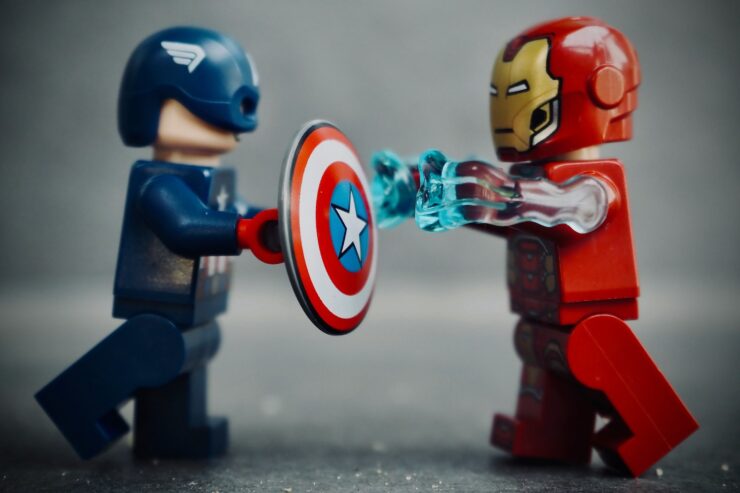

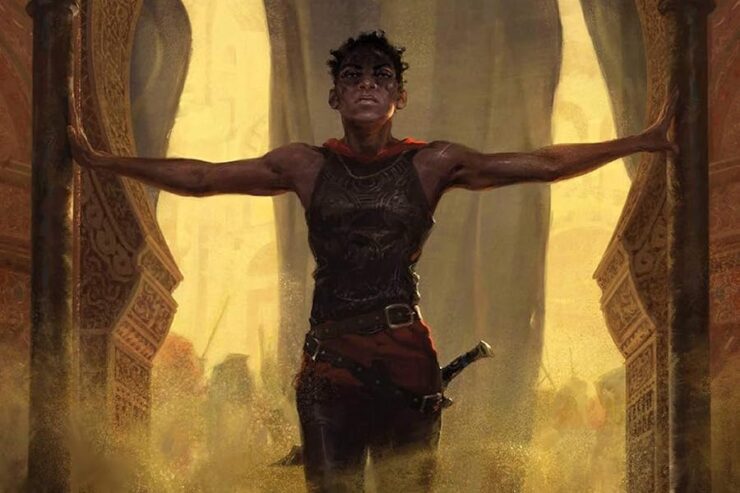
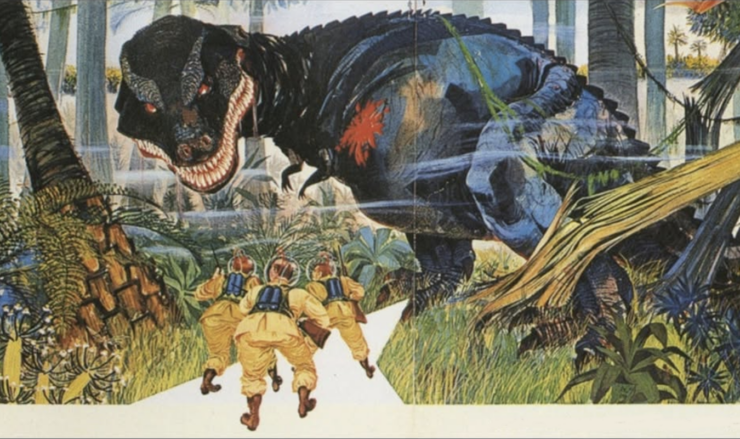

Soon I Will be Invincible is heavily focused on the drawbacks of powers and costumes on both sides of the line. The cyborg Fatale muses at one point that there’s a fine line between superpowers and chronic illness.
The more recent novels in Charles Stross’s Laundryverse series features multiple characters acquiring super powers due to a change in Earth’s magical potential. This is a prelude to the return of Cthulhu and his ilk, so it’s not at all a positive development for the world in general, and being super-powered, no matter what the power is, is life-limiting, due to the nature of the entities that confer these powers.
Some of the stories in the “Wild Cards” books focus on Aces who act as “super heroes” but still have to have a day job to pay the rent and grocery bills. And because of the nature of hero-ing, those tend to be low-paying jobs.
K.M. Herkes’ ROUGH PASSAGES (interconnected stories) and SHARP EDGE OF YESTERDAY definitely explore the drawbacks on your personal and professional life of superpowers. Really humanistic stories of people having a chance to genetically develop various superpowers after the age of 40 due to something called R-factor in the population, and a special military battalion they get drafted into when they do…provided their powers didn’t arrive as an uncontrollable catastrophe that must be handled by said battalion, which they often do…!
https://dawnrigger.com/
It’s kind of alarming in retrospect to see how many of the villains the Legion of Superheroes faced were driven to criminality because their powers made them social rejects. Cosmic King has the same power set as Element Lad but since he came from Venus, where transmutation is anathema, gaining his powers made him an outcast.
Granted, I can see why the neighbours might be a bit concerned about living next to Mano (can disintegrate whole worlds with a touch [1]) and Validus (behemoth prone to homicidal rages).
1: I wonder what his gloves are made of?
And of course there’s Philip Wylie’s 1930 novel gladiator, where Hugo Danner has basically the same powers that Superman did in 1938. Pretty much all his attempts to use them for good have painful consequences, or are shown to be futile.
My favorite take on maybe superpowers aren’t that awesome, after all comes from “Soon I Will Be Invincible” by Austin Grossman. As the would-be Supervillain main character says: “There’s a fine line between a superpower and a chronic medical condition.”